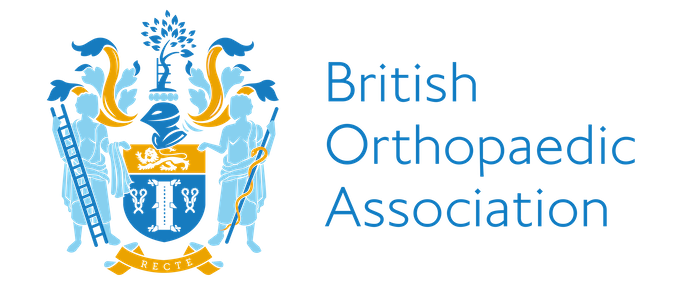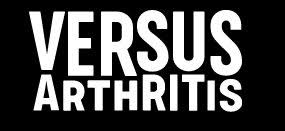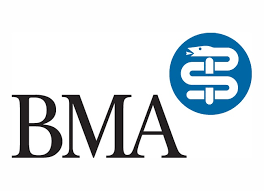An arthroscopy is an operation on your knee which involves placing small “keyhole” incisions just below and either side of the knee cap. Normally two incisions are required but occasionally extra incisions are necessary. One of the keyholes may have to be enlarged if the removal of large loose bodies is required.
Through the keyhole incisions a surgical cameral is placed to allow visualisation of all the inside of your knee. Specialised arthroscopic instruments are passed through the other keyhole to help treat the problem with your knee.
You may have symptoms in your knee suggestive of a cartilage (meniscal tear) of have had an MRI scan confirming this or another problem amenable to arthroscopic treatment such as localised damage to the articular cartilage or a loose body. Arthroscopy can also be useful in assessing ligament damage and often an examination of your knee ligaments is performed whilst your knee is fully relaxed under anaesthetic. Mr Brew will discuss in detail with you the reasons for recommending an arthroscopy.
The vast majority of knee arthroscopies are performed under general anaesthetic. Occasionally, if you have a particular health problem you may require a spinal anaesthetic. The anaesthetist will discuss this with you before your operation.
This depends on what the problem is with your knee but generally knee arthroscopy takes approximately 30-40 mins
You will be admitted on the day of your operation and seen by Mr Brew and his anaesthetist on the ward before surgery where your consent for your arthroscopy will be re-confirmed and any final questions can be answered. A mark will be placed on your operative leg before you are transferred to theatre. On your arrival in theatre you will be greeted by the anaesthetist again in the anaesthetic room where your anaesthetic will be delivered. A tourniquet will then be placed around the top of your thigh and your knee ligaments examined before transfer into the operating theatre. Your leg will be painted with a special antiseptic solution to help reduce the risk of infection. This will leave your leg looking slightly brown or pink depending on which cleaning solution was used. This may take a few days to wash off completely.
Your leg will then be covered with sterile surgical drapes. At least two keyhole incisions are then placed to allow the insertion of a camera and the arthroscopic surgical instruments.
Local anaesthetic is placed around the keyhole wounds which are closed with steristrips. Only occasionally are skin stitches required.
When you wake up you will have a bulky bandage around your leg which is covering the dressings over the keyhole incisions beneath. The bandage can be removed in 48hrs but the dressings must be kept in place until the wounds they have fully healed which takes approximately 14 days. It is important to keep your wounds dry until they have fully healed to minimise infection risk.
You will wake up in the recovery area of theatre where you will be made comfortable and seen by Mr Brew before transfer back to the ward. The nurses will check your observations to ensure you make a full recovery from the anaesthetic. Physiotherapists will then assess your need for any walking aids. As soon as you are assessed safe to go home you will be discharged.
If you are normally healthy you can expect to go home the same day as your surgery.
Mr Brew will review your progress in the outpatient clinic within 2-4 weeks following your surgery.
This depends on the extent and nature of your surgery and how fit you normally are. Most people recovering from a simple cartilage tear could expect to recover by 2-3 weeks but it can take several weeks to fully recover if more extensive damage is present in your knee. If you are found to have degenerative changes in your knee your symptoms may never be fully relieved but should improve significantly following your arthroscopy.
There are no fixed rules but Mr Brew advises you wait at least 2 weeks for your wounds to heal and not to fly for at least 4 weeks following your arthroscopy due to increased risk of venous thromboembolism (blood clots developing in your leg that can spread to your lungs).
You should not drive for at least 2 weeks following your arthroscopy and not before you feel completely fit and well. You should practice working the car pedals on the drive and performing an emergency stop whilst stationary. If your knee becomes painful doing these activities you should not drive. If you are involved in an accident your insurance company may look into your recent medical history and this could affect your claim.
This depends on what type of job you do and the extent of your surgery. If you have a desk based job you should be able to return at two weeks but if you have a heavy manual job you made need a few more weeks to recover fully.
If you have an isolated problem in your knee such as a meniscal cartilage tear you can be hopeful of a significant improvement following your arthroscopy. However if you are found to have underlying degenerative changes in your knee you may have some residual symptoms but should still feel an improvement.
Mr Brew will explain the risks and rewards of undergoing a knee arthroscopy with you at your consultation and answer any questions you may have.
Arthroscopy is one of the safest orthopaedic operations performed but all surgery carries some risk. If you are normally fit and well there is only a very small risk from the anaesthetic. The most common complication is a blood clot (deep vein thrombosis) developing in your leg which can spread to your lungs (pulmonary embolism). This is very rare but serious. If you are taking the oral contraceptive pill you should stop taking it 6 weeks prior to your surgery to minimise this risk.
There is a very small chance (<1%) of infection developing in your knee but this is serious if it happens as it can cause permanent damage to your knee. Please keep your wounds dry to minimise this risk.
Very rarely the pain in your knee doesn’t improve following surgery and if this is the case further surgery is often not beneficial.
If your problem is within office hours please call the ward where you were treated and the nurse in charge will contact Mr Brew if necessary. This information will be given to you before you are discharged. If your problem is urgent and out of hours please go to your nearest Accident and Emergency Department.







